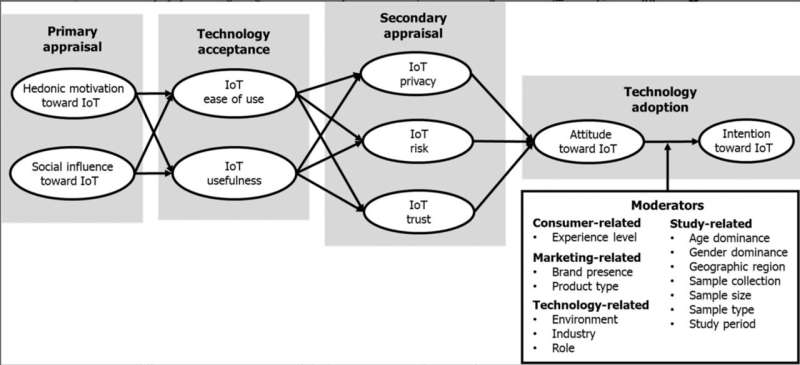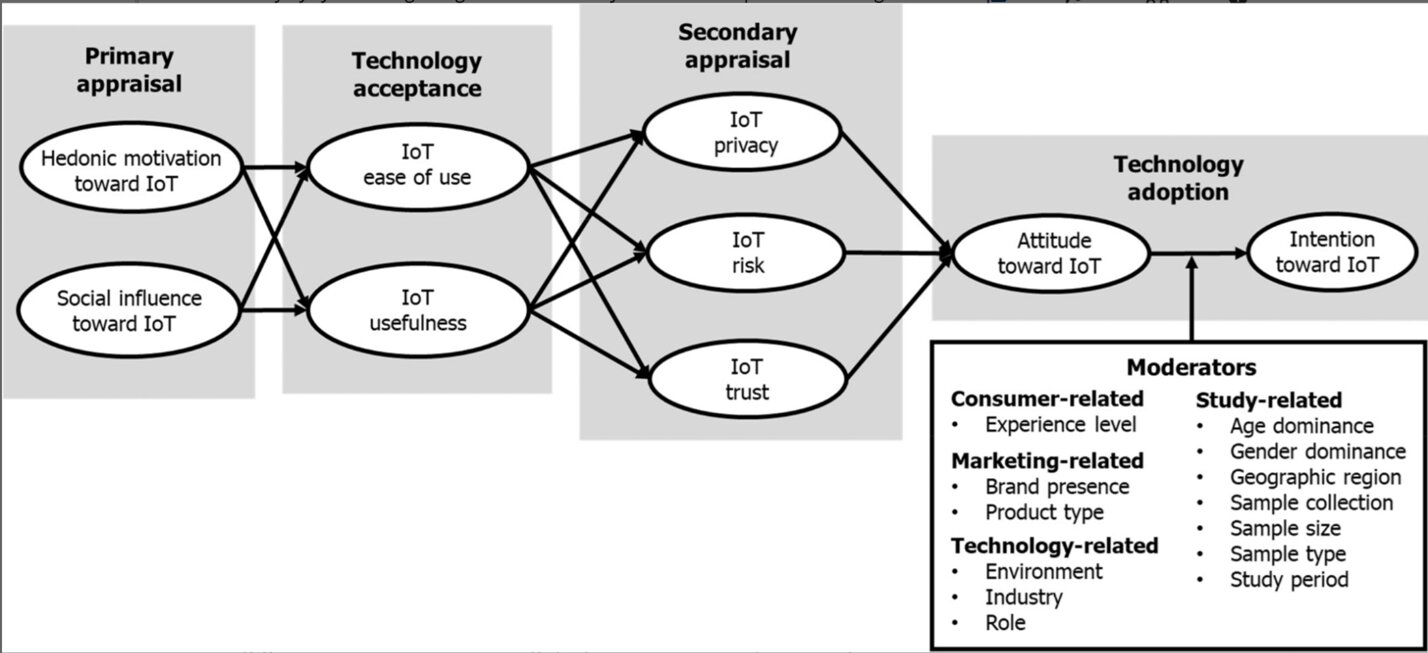
Adoption of the Internet of Things (IoT). Credit: Journal of Consumer Behaviour (2024). DOI: 10.1002/cb.2427
The Internet of Things (IoT) is a new way to connect devices like smart watches, home speakers, and health monitors to the internet. Many people believe these smart products make life easier and more enjoyable. But even with so many good things, not everyone is quick to start using IoT.
Researcher Dr. Tareq Rasul from Gulf University for Science and Technology in Kuwait, together with researchers from Brazil, Malaysia, Australia, and India, wanted to understand why. They combined results from 138 different studies, with information from more than 52,000 respondents around the world, to see what makes people accept or avoid IoT. Their meta-analytic study is published in the Journal of Consumer Behaviour.
The research found that before people decide to use IoT, they usually think in steps. First, they see if the device looks fun (hedonic motivation) and how their friends or community feel about it (social influence). Then they check if it is easy to use and really helpful.
If a smart product is too hard or not very useful, people do not want it. After that, many start to worry. They think about their privacy, possible risks, or if they can trust the company behind the device. These fears can stop people, even if they like the idea.
The study also found that these reasons change by age, country, and experience. Younger people, students, and those already comfortable with technology are more ready to try IoT. People also trust well-known brands more, and people in Eastern countries like China or India often think differently from those in Western countries like France or the U.S.
In the end, this study gives important lessons for companies and designers. It shows that to help people accept IoT, products must be simple, safe, and truly helpful. Companies must also protect privacy and build more trust. This research gives a clear view into how people think before choosing to use smart technology. It can guide makers and leaders to plan better, so IoT can fit nicely into our daily lives.
More information:
Wagner Junior Ladeira et al, Consumer Adoption of Internet of Things, Journal of Consumer Behaviour (2024). DOI: 10.1002/cb.2427
Provided by
Gulf University for Science and Technology
Citation:
New research shows why people use the Internet of Things (IoT) and why sometimes they do not (2025, July 22)
retrieved 22 July 2025
from https://techxplore.com/news/2025-07-people-internet-iot.html
This document is subject to copyright. Apart from any fair dealing for the purpose of private study or research, no
part may be reproduced without the written permission. The content is provided for information purposes only.

